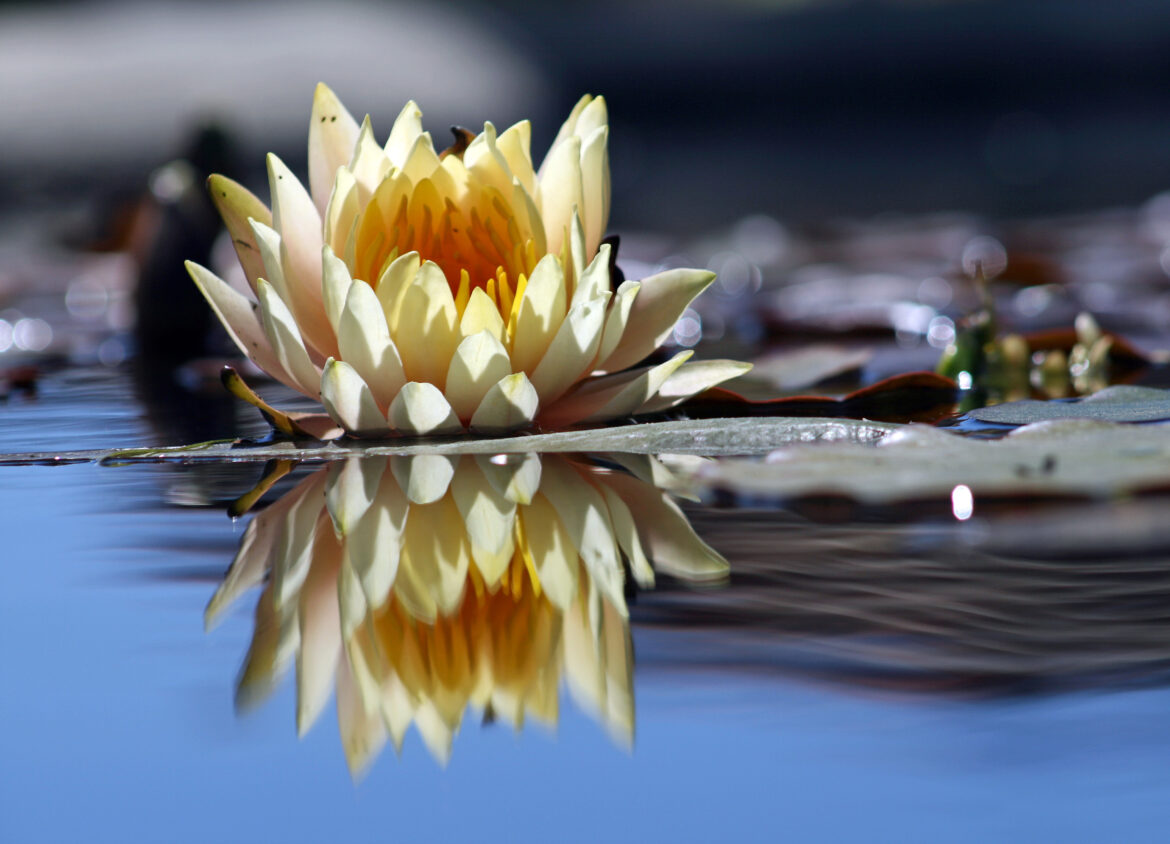How do you reflect on your daily work? Reflection can be a bit daunting. After a long day’s work, you may stagger home, plop on the couch, and pass out. You know reflecting on your day is important, but waiting until the day’s end is too hard.
What Are the Benefits of Reflection?
Reflecting on what you do, what you learn, or what you fail to do or learn, remains critical. The benefits of reflection include:
- Engaging in a thoughtful relationship with life
- Becoming active and awakening to one’s lived experiences
- Gaining insights from asking oneself tough questions, resulting in a more active rather than a passive, non-reflective state
What’s more, reflective practice allows teachers to:
- Move from experiencing a lesson to understanding what happened and why
- Challenge the underlying principles and beliefs that define the way that you work
- Adapt in a quicker manner to sudden change
- Improve the way you learn and do work
- Be authentic and honest about growth, success, and failure
Some suggest that the process of education is about cultivating a reflective practice. You could adapt Mark Twain’s famous quote about reading to reflect in this way:
“An educated person who does not reflect has no advantage over the person who lacks an education yet engages in daily reflection.”
Self-Judgment and Reflection
Research indicates that when students do a few specific things, they can speed up growth. John Hattie refers to Self-Judgment and Reflection as having an effect size of 0.75. This is a bit better than Reciprocal Teaching (d=0.74).
The Visible Learning MetaX database describes this introspective strategy in this way:
Self-judgement is a critical component of independent, self- directed learning. Students can often over- or underestimate their own capabilities. Teachers should cultivate in students the ability to apply standards to their own work. Researchers have pressed the importance of a student’s ability to do the following: 1) reflect on her work; 2) discern its relationship to established standards, and 3) make self-judgements.
Two strategies anyone can use include cultivating metacognition and devising short quizzes. That is, thinking about thinking and quizzing yourself about what you’ve learned.
What Are Micro-Reflections?
As I get older, I’m always on the lookout to reflect along the way. This is a far better approach than waiting until the end of the day. I call these reflections about experiences along the way “micro-reflections.” How do you engage in micro-reflections?
To assist in developing micro-reflections, I carry a small notebook with me. In it, I will share what I’ve learned and what my first impressions and beliefs are about it. Let’s take a look at one approach to reflecting.
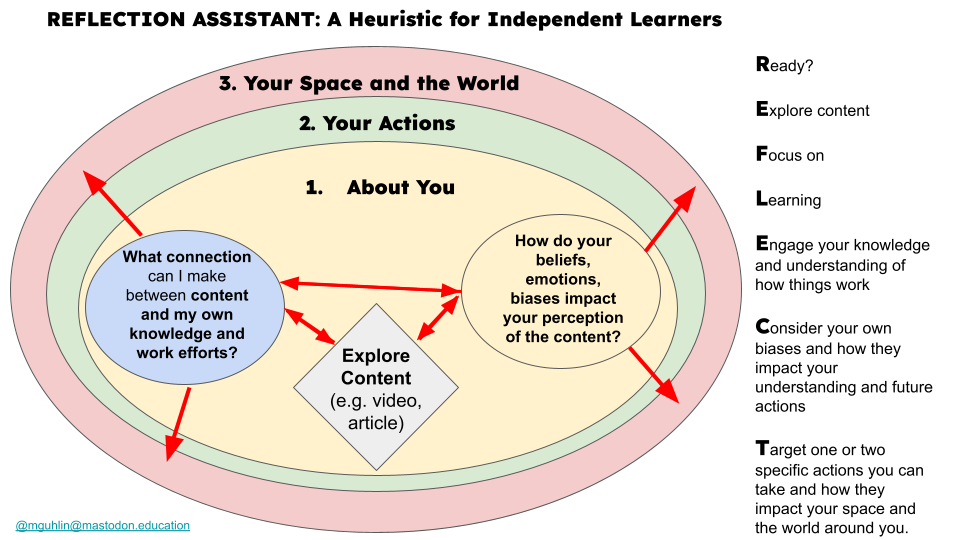
Get a copy of all images shown via Google Slides. Inspired by The Actiope Model. Learn more online.
Adopt a Process
This process below starts with you. It is always about you when you are reflecting. You learn how to own your actions, and what actions are not yours. In the end, you can only change yourself and learn from others, whether they intended to teach or not. You can get started reflecting with this one-pager. Let’s walk through each part together.
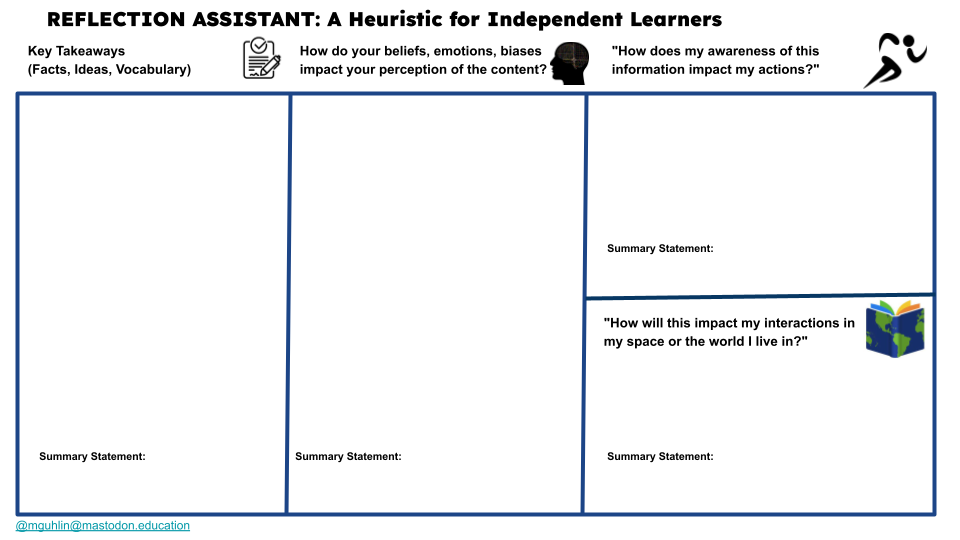
Inventory Beliefs, Emotions, and Biases
Once I encounter new information or knowledge, I interrupt my reaction. I ask myself how I see that reaction affected by my own emotional state and biases. This helps me inventory my biases, a critical first reaction to new knowledge or ideas. This is valuable because I’m often irritated when encountering an idea because it often runs contrary to what I already know. My goal is to shed the irritation and focus on the new idea to understand it better.
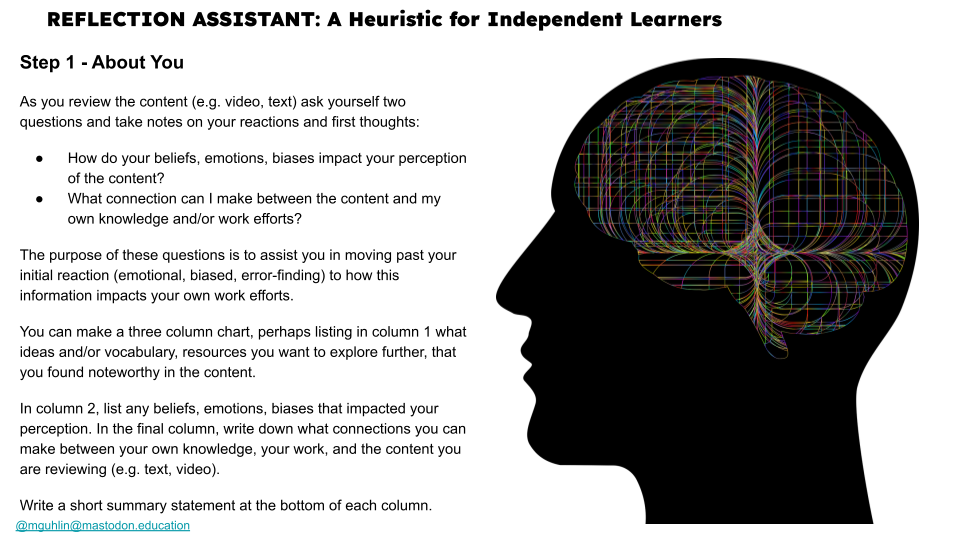
Impact on Actions
Then, I write down what the impact of that knowledge or idea might be on my space or my sphere of influence.
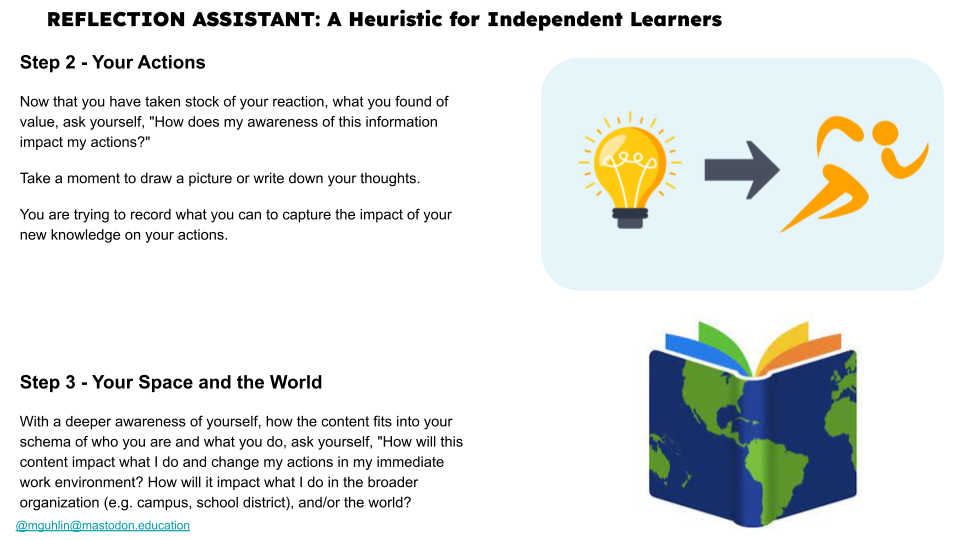
Impact on the World
This penultimate step is tough, because it requires me to ask what am I prepared to do to change the world. Some days, I’m not prepared, or I’m only prepared to do something small – like write a blog entry or chat with a colleague.
Wrapping It Up
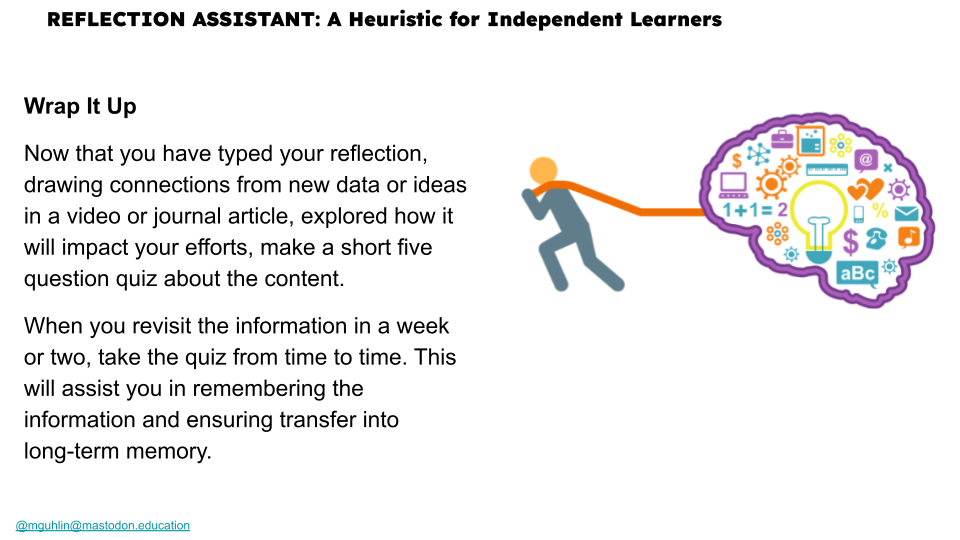
This is the tough part, and it may be a few hours or days before I come back to do this. Making up a quiz about what you’ve learned can help you remember it. Make up the quiz when the information is fresh, then let it sit for a day or two. When you take the multiple choice quiz later, it will help you retrieve the information in your head.
Using the Reflection Heuristic
The idea behind this reflection heuristic is simple. It’s essentially a formula for reflecting. After a while, it gets easier to do because you do it every day. With micro-reflections, you get to go through the process several times a day.
People ask me, “How do you write about so much?” My answer is that I take a look at the notes I write first, then follow this process to share one thing I have learned. In a short time, you can amass a lot of ideas, write a reflection, and then a week or month later, reflect on your original reflection. This makes it fun to discover, “How have I grown (or not) relevant to this piece of information that was wonderful enough to write down?”
Give it a try.

